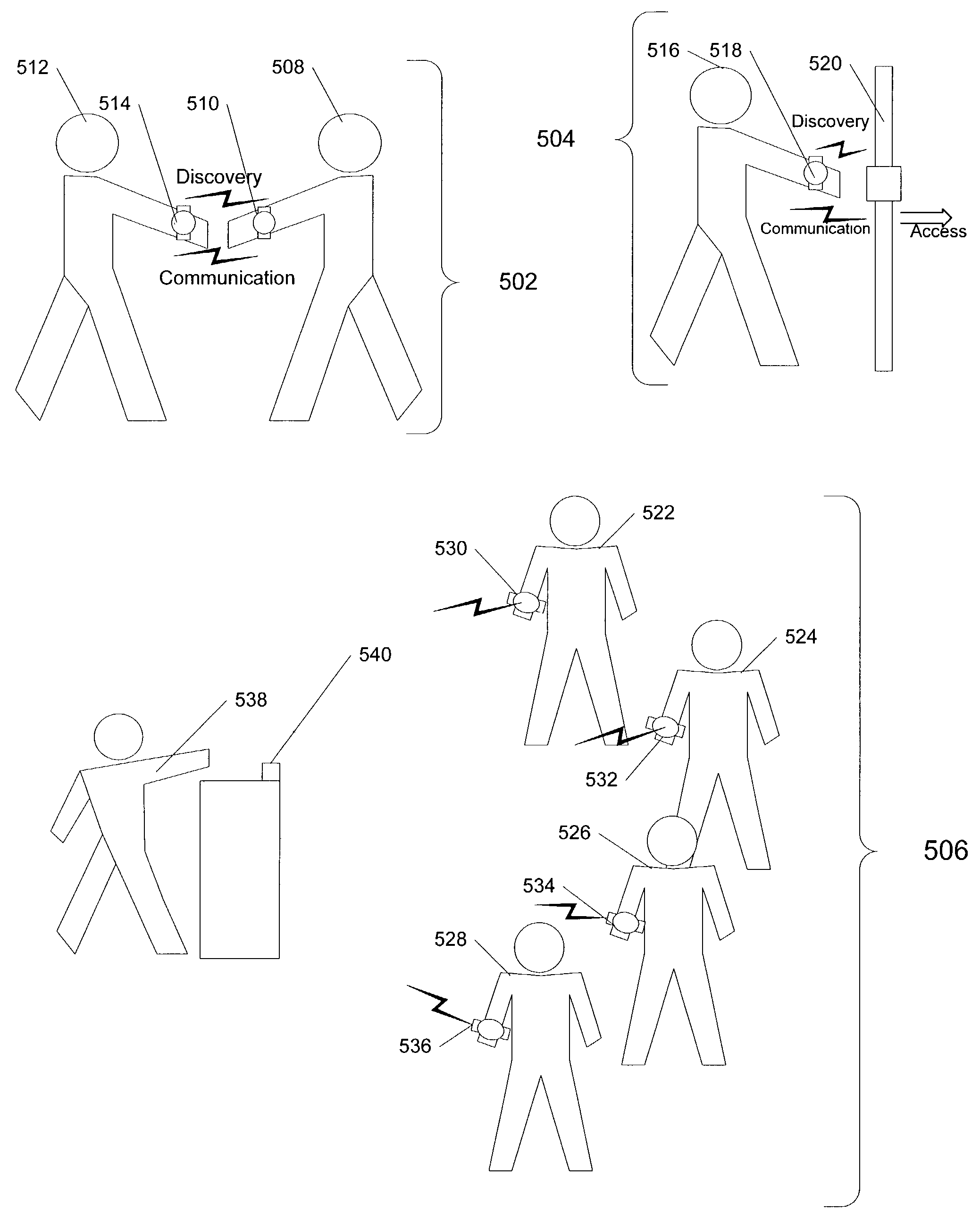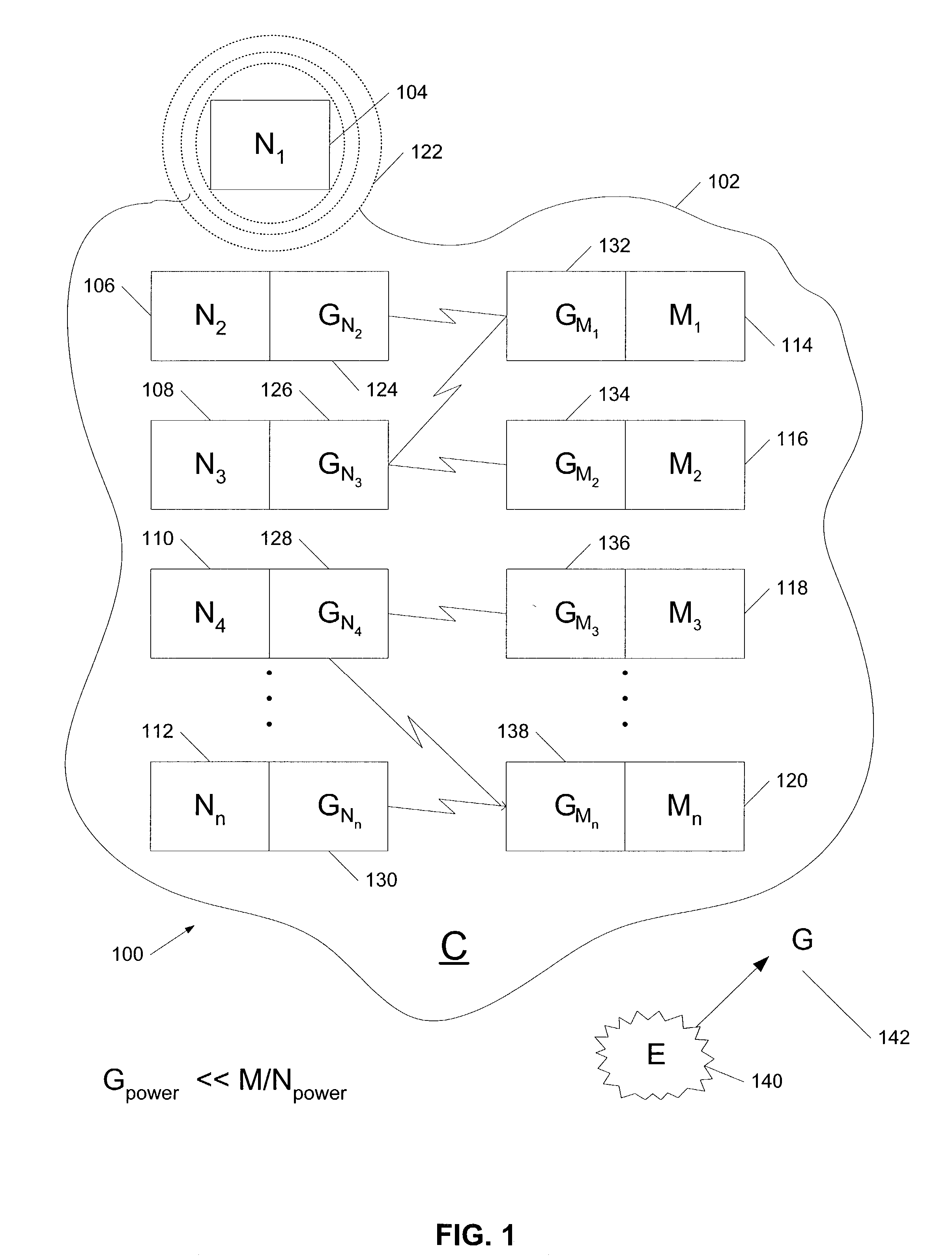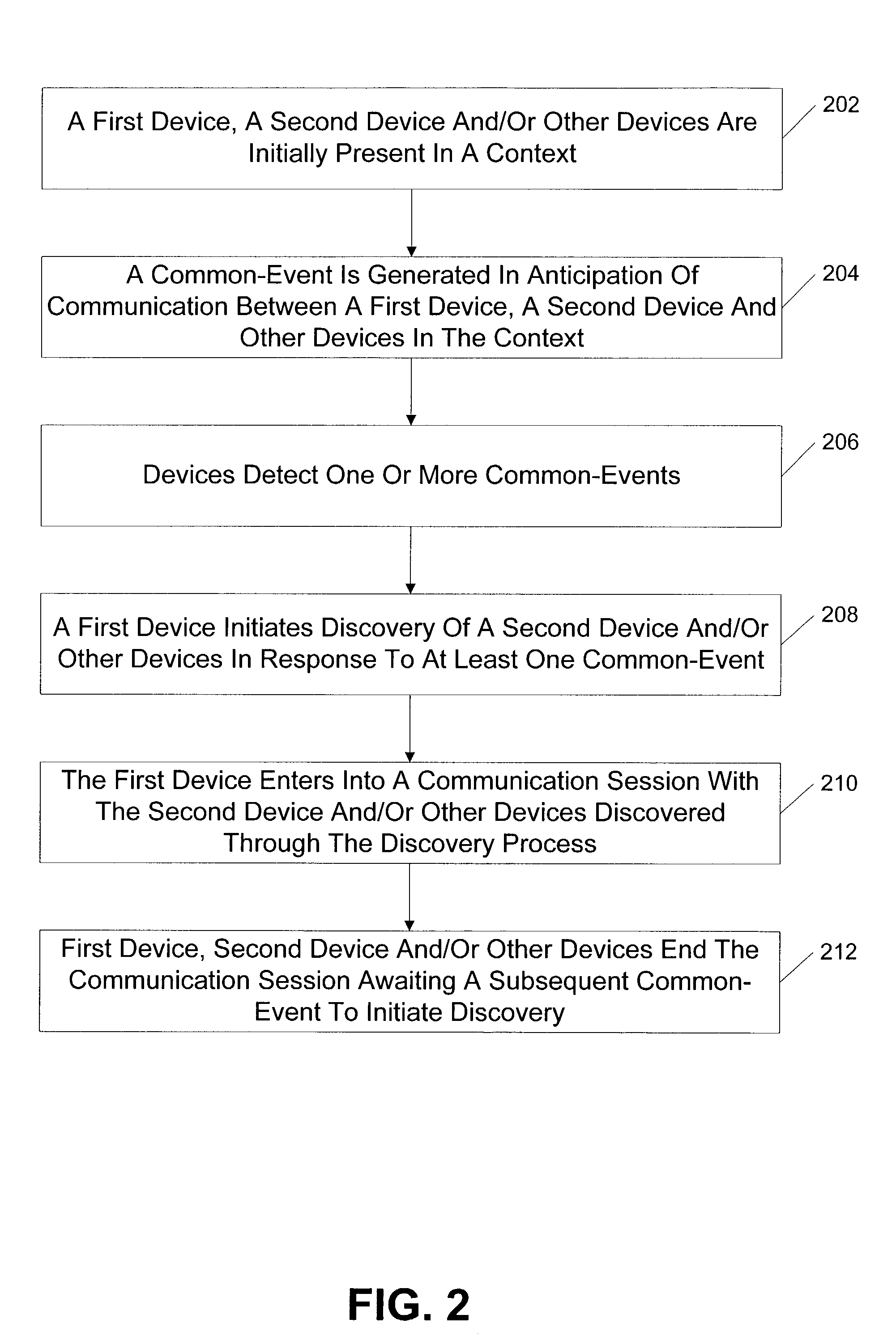Event-driven discovery method and apparatus
a discovery method and event-driven technology, applied in the field of device discovery and network communication, can solve the problems of reducing the actual communication time available, wasting a great deal of time and energy during the discovery process, and high overhead cost associated with discovering and maintaining these networks
- Summary
- Abstract
- Description
- Claims
- Application Information
AI Technical Summary
Benefits of technology
Problems solved by technology
Method used
Image
Examples
Embodiment Construction
[0011]Ad-hoc networks are generally formed from mobile devices connected together over wireless links in an arbitrary graph. The topology of an ad-hoc networks changes quickly and unpredictably as mobile devices spontaneously leave one ad-hoc network and become part of another. Successful communication in these ad-hoc networks requires the devices to occasionally explore the existence of other devices through a discovery process. During discovery, devices identify other devices interested in communicating and exchange preliminary communication parameters and information necessary to effectuate a communication session.
[0012]Implementations of the present invention help a wide-range of device types, both mobile and non-mobile, perform discovery rapidly, efficiently and with lower-energy requirements. Advantages that can be seen in implementations of the invention include one or more of the following. Using a common-event to trigger the discovery process, each device performs discovery...
PUM
 Login to View More
Login to View More Abstract
Description
Claims
Application Information
 Login to View More
Login to View More - R&D
- Intellectual Property
- Life Sciences
- Materials
- Tech Scout
- Unparalleled Data Quality
- Higher Quality Content
- 60% Fewer Hallucinations
Browse by: Latest US Patents, China's latest patents, Technical Efficacy Thesaurus, Application Domain, Technology Topic, Popular Technical Reports.
© 2025 PatSnap. All rights reserved.Legal|Privacy policy|Modern Slavery Act Transparency Statement|Sitemap|About US| Contact US: help@patsnap.com



